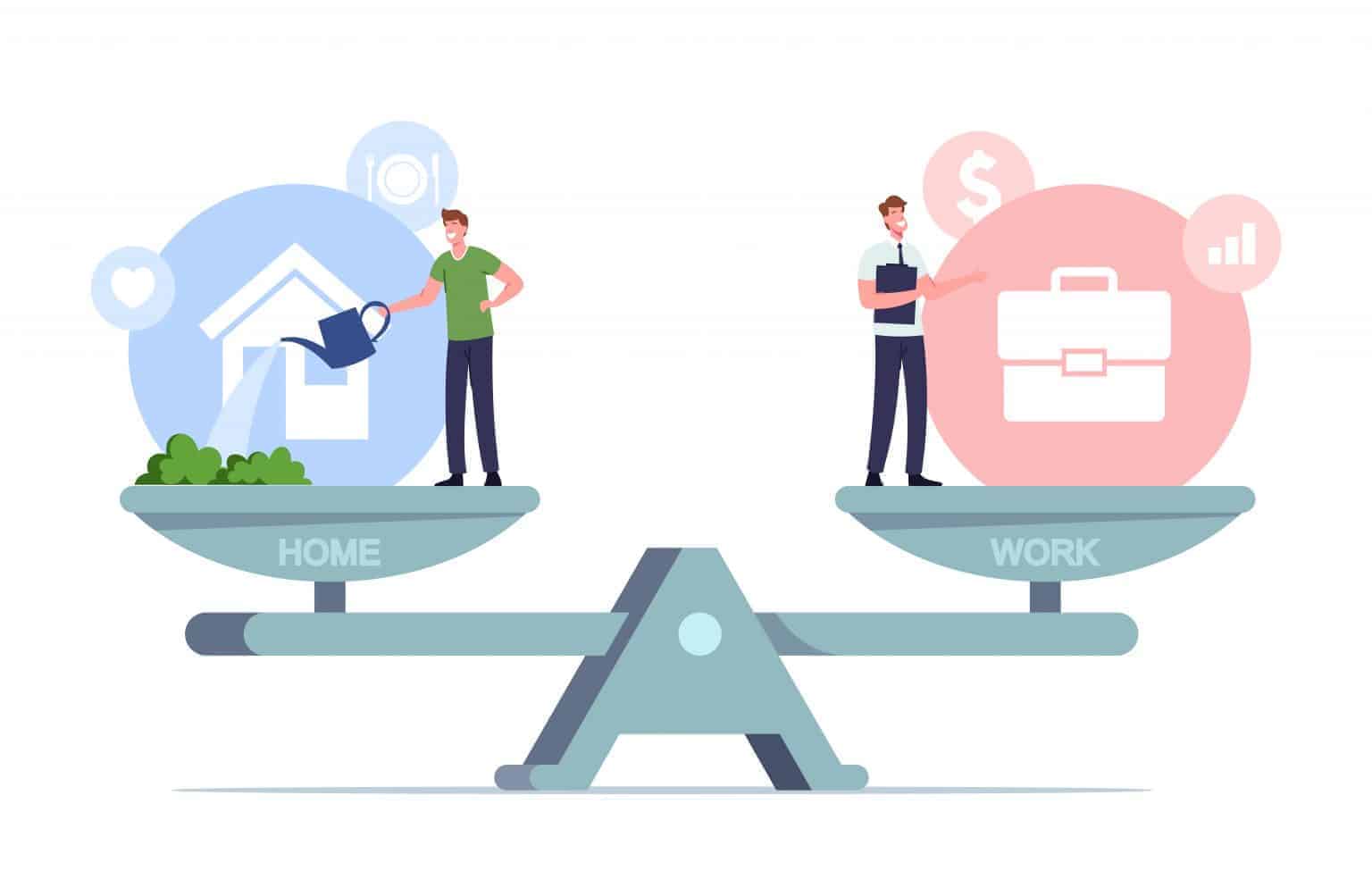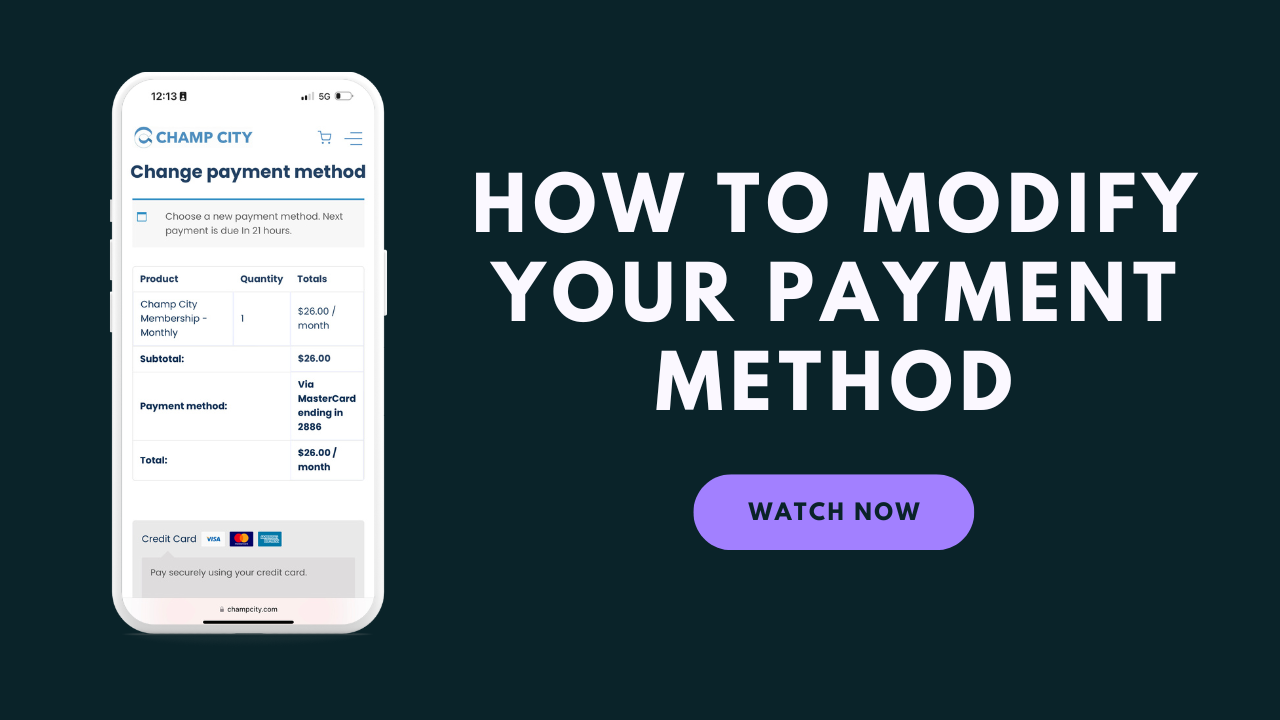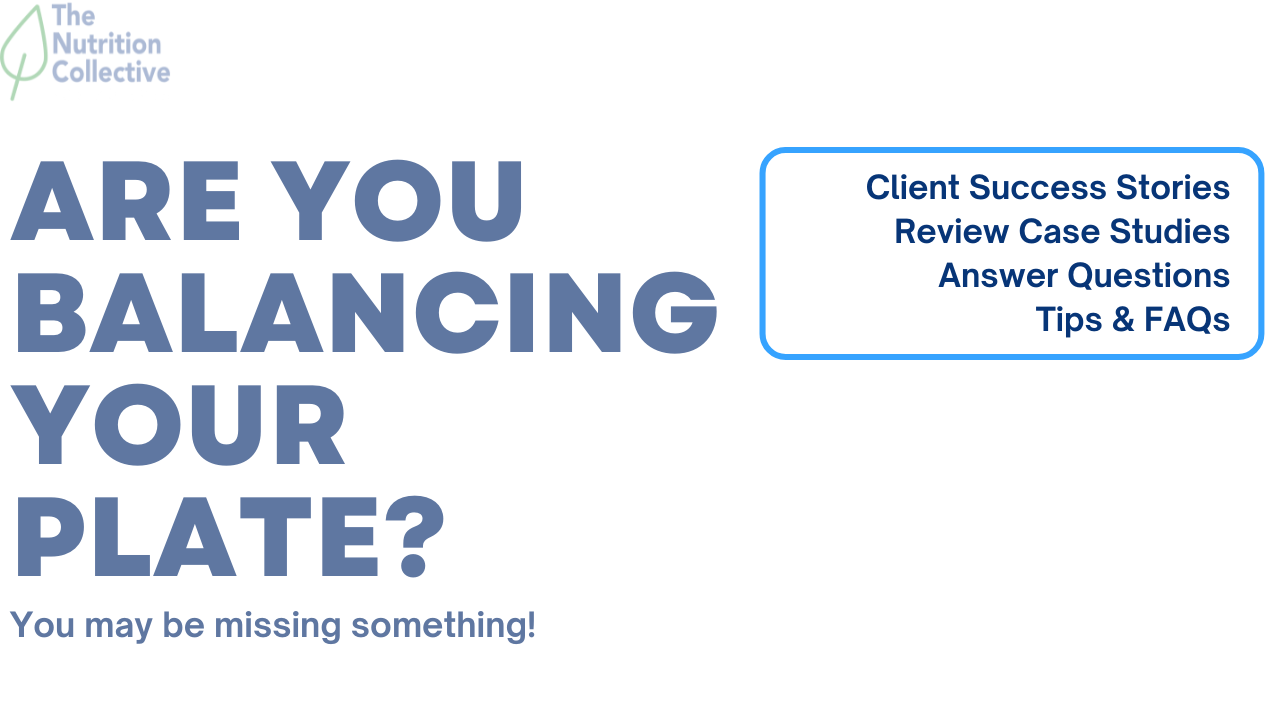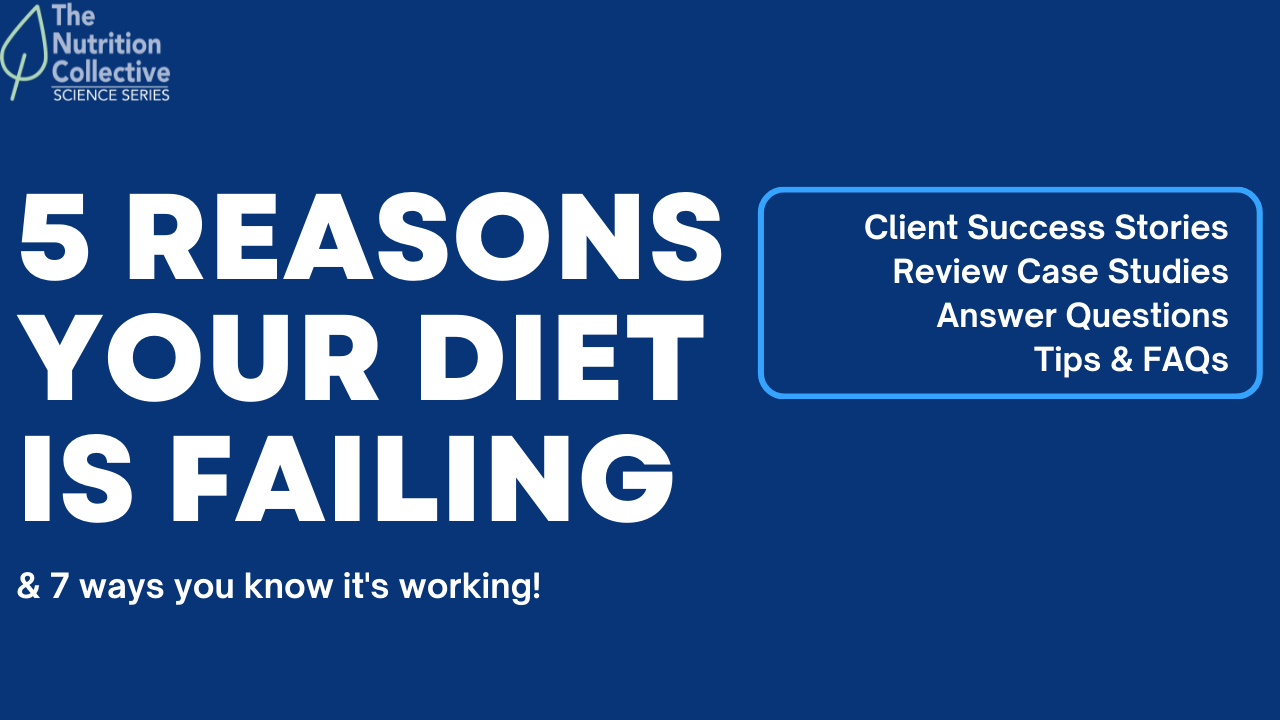Just because you’re not ill doesn’t mean you’re well. Our pursuit here in Champ City is overall wellness. It makes me think and reflect about my life. True wellness means being satisfied, happy, and purposeful just as much as being healthy and fit.
Discontentment has a stigma of being intentionally unhappy or even jealous of those around you. So when we’re asked if we’re happy or well, we say yes even if we are not.
We might be doing well at work, or maybe achieved a fitness goal, but looking at all facets of our life is important to assess our overall wellness. Everything should have balance.
Maybe you work too much that you no longer have time for yourself. Or perhaps you’ve been flourishing in your social life and other personal pursuits, but you neglected planning for your future; your financial wellness is nonexistent. What about physical fitness? Are you pursuing it for healthy reasons, in healthy ways, and could you confidently say you are emotionally and mentally well?
Paying attention to all dimensions of wellness is the key to fostering your overall well-being. Focusing on only one domain single-mindedly is the opposite of mindfulness and would inevitably impact other dimensions of your life.
How Do You Score In These Eight Dimensions Of Wellness?
Wellness is a holistic integration of all important aspects in your life (1). I found that one effective way to assess real wellness is by strategically looking at eight different dimensions of life, and observing how you feel in each of them.
This analysis helps guide my goals for bettering myself in areas I find are lacking.
All of these dimensions are familiar. For example, cultivating grit in kids and in ourselves went viral for some time, and you probably have subscriptions for financial advice newsletters. You’re reading this blog from Champ City because you pursue physical health and you know what that entails.
All eight dimensions can contribute to overall wellness. Each section has prompts to help you evaluate your wellness in that dimension.
Physical
What does physical health mean for you? It doesn’t have to be muscles and triathlons, but it can be, if that’s what you want. Your definition of it can have its own milestones and indicators. An example is being cleared or even praised by your doctor on your annual physical. Or being able to keep up with your young kids at play.
- Are you happy with the way you eat? Is it something you can be proud of?
- How much of your day do you spend working? Does it drain you?
- Are you content with your sleep? Do you feel energized and rested?
- Can you do simple activities without getting winded, like taking the stairs? How many floors can you do?
You can make the most out of your life if you maintain an optimal physical health.
Emotional
This dimension of wellness can mean mindfulness, peace, and self-confidence. Simply, feeling happy and being in control of your happiness, choosing how to react to everyday situations.
For working people, an example can be recognizing that office politics doesn’t have to stifle you. Or it can be doing something you love without being anxious or guilty about it.
- What is your stress reliever?
- Do you regularly take a break for yourself?
- How do you acknowledge your feelings? Do you prefer talking about it with someone you trust, or do you keep it in your journal?
- Do you speak up when you feel you’re being unfairly treated?
When you’re emotionally well, you can think straight and make smarter decisions every day.
Occupational
Your work shouldn’t hinder you from enjoying other pleasures of life. In this dimension, you balance your career and your personal satisfaction, and you don’t settle and suffer in a bad workplace environment.
Occupational wellness can simply mean going home without taking the stress from work, and going to work without dreading it, because you love what you do and the people you work with.
Assess your occupational wellness and ask yourself these questions:
- How is your career going so far? Have you been so driven and focused on your work lately?
- Do you still have a social life outside of work?
- How does your work affect your emotions?
- Do you still have the same level of motivation as when you first started?
- Are you due for a break so you can decompress and rekindle your passion for your work?
When you’re occupationally well, you feel good at the end of every day knowing that you accomplished your work and you enjoyed doing so.
Social
Introverts, extroverts and those in between would have different definitions for a healthy social life. It doesn’t matter if your best friend is your sister/brother and you don’t feel the need to go out and meet more people.
But do you adapt easily when you do go out? Are your relationships meaningful, and you take care of those you count as friends?
Ask yourself these questions to assess your social health:
- How do you socialize?
- Are you happy with your current social relationships?
- Do you practice assertive skills rather than passive and aggressive ones?
- Who are the people you spend more time with? Do they give you the sense of company you need?
- Do you treat everyone with respect?
- How do you balance your social life with your responsibilities? And your time for yourself?
- Do you have a supportive network from your family and friends?
- Do you have clear boundaries about what’s acceptable and unacceptable behavior in your friends? How do you encourage communication and conflict management?
- What is your definition of having fun?
Social wellness steers you away from stressful and toxic relationships that negatively impact the other dimensions of your life.
Intellectual
Life is a continuous learning journey. You live your life to the fullest when you explore things outside your existing perspectives and biases and remain open to lifelong learning.
- What are your interests?
- What skills do you want to develop and what areas do you want to improve yourself?
- How does your new skills affect your overall well being? Do you feel recharged while discovering new things?
- How do you cope with and manage changes?
- Do you participate in respectful discourse about things you might disagree with?
- How well do you know yourself and your values and beliefs? And the flaws in those beliefs?
- Do you still research and explore your field of expertise for innovations? Do you try them out?
Financial

This dimension can mean living the life you’ve always wanted, or simply having a stable job. But it still depends on how you manage your expenses. Do you have a budget plan you can stick to? Do you pay down your debts, if there’s any? You can be employed, but still be financially ill if you don’t track your expenses properly.
A study shows that income doesn’t dictate happiness, but financial instability can affect your overall wellness (2). A lot of people experience stress and anxiety because of their inability to sustain their needs. They work more, or they escape from this stress through unhealthy activities.
- Are you spending more than what you earn?
- Do you have a steady flow of income?
- How do you manage your expenses? What’s your financial management strategy?
- How do you consider yourself financially stable?
- What are your financial goals? How do you work towards achieving them?
When you’re financially sound, you’re not just able to meet your short-term expenses. You’re also happy and content about your future.
Spiritual
Spiritual health is achieved when you feel at peace with your life. Attentiveness to your own spirit is critical to your healing and can help you improve your overall well being.
Spiritual wellness is a great way to start reflecting on yourself. When you’re spiritually well, you have a good connection with yourself, with other people, nature, and a higher power, no matter what you conceive it to be. (3) You’re also able to find hope despite problems.
- What’s your main purpose?
- What are your values and beliefs? How does it affect your overall well being?
- How do your previous life events affect your personal perspective in life?
- Can you say you have a resilient spirit, not easily discouraged or intimidated when you face challenges?
In this dimension, you dig deeper into your inner self to search for your purpose in life. You find reasons and motivations to continue working towards your goals. It also gives you clarity when it comes to your everyday choices.
Environmental
Environmental wellness is simply about being comfortable and at ease with the space where you spend most of your time. For working people and students, it can be a peaceful and productive workspace.
This dimension depends on the type of person you are. For example, you might be more productive if you work alone in a quiet room. Or you need constant interaction with your peers so you won’t feel drained while working.
- How is your workspace? Is it efficient and comfortable?
- Do you have enough resources in your workspace?
- How does your workspace affect your overall wellness?
- Are the people around you a source of strength or stress?
Being mindful about these little things helps you understand how your environment affects the way you work, and your overall wellness.
You get the right balance of your life when you learn how to balance these eight dimensions of wellness. You’ll live a happy, productive, and fulfilling life moving forward.
Balancing Your Life Towards Overall Wellness

We all have responsibilities. There are things we WANT to do, and things we NEED to do. The real challenge is balancing these two to maintain our satisfaction as a person.
A balanced life is essential for your overall wellness. It nurtures your peace of mind, productivity and happiness. There might be physical or emotional consequences if we aren’t able to combat stress and manage a balanced life.
Spend Some Alone Time
For an overworked person enslaved by tons of tasks at home or at work, spending some time alone is probably the hardest thing to do. But it’s a crucial part of maintaining your overall wellness.
It doesn’t have to take a huge chunk of your day. Dedicating a few minutes to yourself doing nothing is already enough. Or you can just write, sketch, or anything that relaxes you.
When you start enjoying your own company, you can reflect more often. Since you aren’t spending much time focusing on other people’s thoughts and feelings, it’s easier for you to focus inwards and get in touch with your own thoughts and emotions.
Meditate

Meditation is an exercise of consciousness that helps reduce stress while boosting your creativity and efficiency (4). During the process, you get rid of stress and increase your energy that positively affects your overall wellness.
Meditation or yoga is a great way to spend some time alone. Take some time for yourself, and use it well. Instead of, or in addition, to decompressing in front of the TV or your gaming console, try to listen to yourself.
Improve Your Mindset And Optimism
Things might not always go as planned, but a positive perspective can make them flow better. While stress is inevitable, you can choose how you will face the challenges.
When you get in touch with your intellectual wellness, you also improve your mindset. You open yourself to ideas and the best perspectives.
Pick a goal you want to achieve and ask yourself what mindset you need to achieve that certain goal. For example, if you want to be healthy and fit, you shift your mindset to a healthy lifestyle, mindful eating and exercise.
Practice a growth mindset moving forward. This will give you grit and persistence to achieve your goals. Without grit, a talent or skill is nothing more than just a potential. Once you have this mindset, you can overcome challenges you might encounter while developing yourself in a certain skill.
Foster Your Self-Awareness
Self-awareness positively impacts your well being, mental health and day-to-day functioning (5). It helps you discover your passions and emotions so you can find the things that make you happy. Through self-awareness, you recognize your strengths and weaknesses.
Start by cultivating a habit of self-reflection. Simple mindfulness is enough and a good start. Why are you doing this or that? What do you want to achieve today? How does this or that make you feel? Would you be happy if you do this thing, or would you regret it?
You’d be surprised how self-awareness can steer you in the right direction in all aspects of your life.
Your Journey To A Well-Balanced Life
Maintaining a healthy life balance is essential to boost your productivity and keep yourself happy and satisfied in everything you do.
Wellness is more than just your physical health. Champ City helps you build and improve your overall health through consultations and personalized programs tailored to your needs. Contact us today and let our team help you get started.
References:
- Stoewen, D. (2017) Dimensions of wellness: Change your habits, change your life https://www.ncbi.nlm.nih.gov/pmc/articles/PMC5508938/
- University of Sterling (2016) Links between money and happiness uncovered https://www.sciencedaily.com/releases/2016/03/160310111843.htm
- Ghaderi, A., Tabatabaei, S., Nedjat, S., Javadi, M. & Larijani, B. (2018) Explanatory definition of the concept of spiritual health: a qualitative study in Iran https://www.ncbi.nlm.nih.gov/pmc/articles/PMC6150917/
- Sharma, H. (2015) Meditation: Process and effects https://www.ncbi.nlm.nih.gov/pmc/articles/PMC4895748/
- Sutton, A. (2016) Measuring the Effects of Self-Awareness: Construction of the Self-Awareness Outcomes Questionnaire https://www.ncbi.nlm.nih.gov/pmc/articles/PMC5114878/







